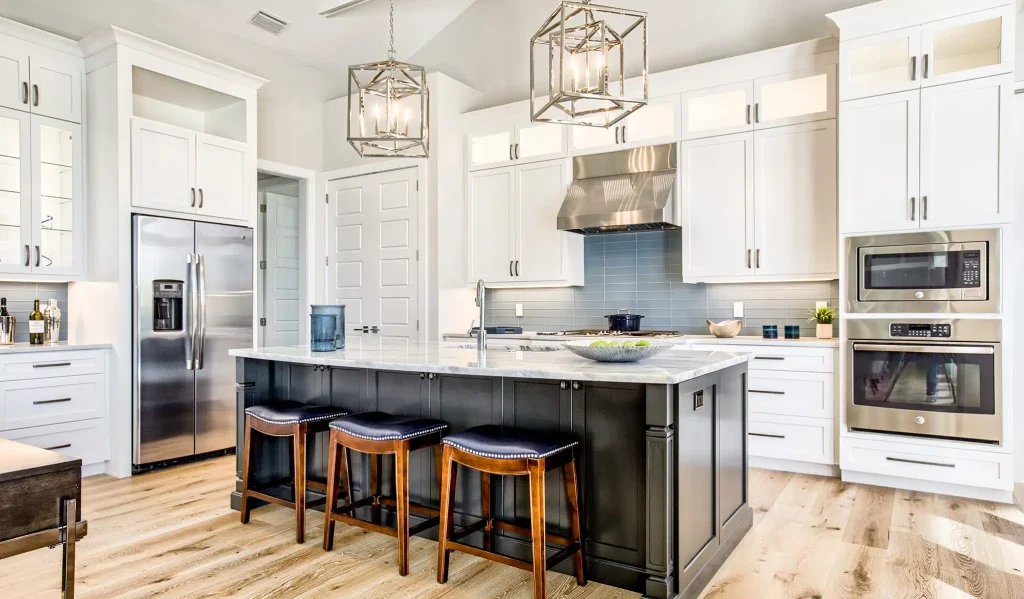Whether you are preparing to sell your home or you just want a refresh for a new season, a home project is a big undertaking. Home Renovation can be a strain on relationships and financial wellbeing despite often being necessary instead of simply wanted. How can financing help you update your home?
Why Renovate?
Home improvement projects, while expensive, are often worth it if they increase the value of your home. On average, homeowners recoup 74 cents for every dollar they spend on home improvement when it comes time to sell. Even if you’re not looking to sell right away, a home renovation will make your living in your current home more comfortable and enjoyable. Some of the best renovations for resale include landscaping or curb appeal additions like a deck, home additions and expansions, adding a double sink to a master bathroom vanity, adding a kitchen island or walk-in pantry, and converting an extra room into a home office following work from home trends. These renovations imply your home is in good repair and relatively updated considering shag carpeting won’t be raising anyone’s eyebrows when it comes time to sell.
The average cost of a home renovation project in the U.S. is $15,000. This average applies to any given project, but the real cost can vary widely depending on contractors, materials, project scope, and location. Whole-house renovations can range from this average to $200,000. Additions will often run you up somewhere between $135,000 and $280,000 considering all the in-depth worth required with wiring, plumbing, structure, and permits. Your standard kitchen and bathroom remodels can go anywhere from $20,000 to $135,000 depending on additions, fixtures, plumbing, and wiring work. Given, this could mean the difference of updated, lead-free plumbing and clean water, it’s still important to think critically on how to finance your project.
Financing Your Renovation
The safest financing option to pay for your renovation is to save. Saving can be challenging for many paying back an expensive mortgage, but it means you don’t have to worry about paying back a loan or a large credit card bill. Alternatively, home improvement loans are unsecured personal loans offered by banks, credit unions and a number of online lenders. Because the loans are unsecured, you don’t need to use your house as collateral to qualify. Your interest rate and qualification are based largely on your credit score. Funding comes quickly and lets you get started on your project right away, with a 12 year pay period and loan amounts of up to $100,00 which covers quite a few renovation project costs.

In more traditional lines of financing, a home equity line of credit (HELOC) offers lower interest rates at the liability backing of your home. You can take what you need when you need it up to your borrowing limit with great flexibility. Your interest may also be tax deductible. The Tax Cuts and Jobs Act allows home equity borrowers to deduct interest paid on home equity products if the product was used for home improvement despite your home risking foreclosure if payments aren’t made on time. Similarly, a home equity loan – sometimes referred to as a second mortgage – allows you to be paid a lump sum that can be repaid over a number of years in regular fixed monthly payment. Loan interest is also tax deductible if you use the funds for home improvement, but you must have good credit to quality for the best rates. The minimum credit for a home improvement loan or home equity line of credit is 660 for most lenders, making financing not difficult to obtain, but you’re more likely to have higher success with a credit score of at least 700.
However you decide to finance your home renovation project, Modern Kitchens & Baths are here to help. We offer kitchen and bathroom renovation services, whole-home countertop options, and financing to make your dream project a reality.





